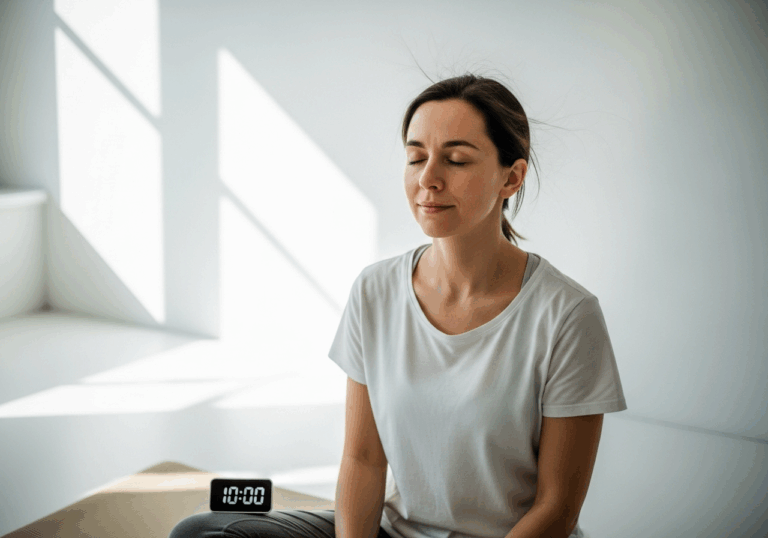Science-Backed Tips
Mindfulness Reduces Anxiety and Depression Significantly
30–60% reduction in anxiety and depressive symptoms with MBCT.
📊 Did you know?
💡 Why It Matters
1️⃣
A 30–60% reduction in symptoms can lead to improved daily functioning and quality of life.
2️⃣
Lower anxiety and depression levels can decrease healthcare costs associated with mental health treatment.
3️⃣
Enhanced emotional stability contributes to better relationships and workplace productivity.
✅ Try These Micro-Tips
🎯
Practice mindfulness meditation for at least 20 minutes daily.
🎯
Engage in mindful breathing exercises three times a day for 5 minutes each.
🎯
Attend a weekly mindfulness-based therapy session for sustained benefits.
🎯
Incorporate mindfulness into daily activities, such as eating or walking.
📚 The study
This significant reduction is not just a number; it translates into clinically meaningful improvements in mental health, leading to enhanced emotional stability and better daily functioning.
When individuals experience lower levels of anxiety and depression, they not only enjoy a higher quality of life but also contribute to reduced healthcare costs associated with mental health treatment.
Furthermore, improved emotional stability fosters healthier relationships and boosts productivity in the workplace.
The findings underscore the importance of MBCT as a viable option for those struggling with mental health challenges, offering hope and a pathway to recovery.
As we continue to explore effective strategies for mental health, this study highlights the transformative potential of mindfulness practices in fostering resilience and well-being.
❓ Frequently Asked Questions ❓
Learn more
What are mindfulness-based interventions (MBIs)?
Mindfulness-based interventions are therapeutic practices that incorporate mindfulness meditation and awareness techniques. They aim to enhance emotional regulation and reduce symptoms of anxiety and depression.
How effective are mindfulness-based interventions for anxiety and depression?
Meta-analytic evidence indicates that MBIs can lead to a 30–60% reduction in anxiety and depressive symptoms. This significant decrease supports improved mental stability and overall well-being.
What is the impact of a 30–60% reduction in anxiety and depression?
A 30–60% reduction in symptoms can significantly enhance daily functioning and quality of life. It also contributes to lower healthcare costs associated with mental health treatment.
How does mindfulness practice improve emotional stability?
Mindfulness practice fosters greater awareness and acceptance of thoughts and feelings, leading to enhanced emotional regulation. This stability can improve relationships and workplace productivity.
How often should I practice mindfulness meditation?
It is recommended to practice mindfulness meditation for at least 20 minutes daily. Consistent practice can help reinforce the benefits and promote emotional well-being.
What are some quick mindfulness exercises I can do?
Engaging in mindful breathing exercises three times a day for five minutes each is an effective way to incorporate mindfulness. Additionally, practicing mindfulness during daily activities, such as eating or walking, can enhance awareness.
How can I maintain the benefits of mindfulness over time?
Attending a weekly mindfulness-based therapy session can provide sustained benefits and support ongoing practice. Regular engagement with mindfulness techniques helps reinforce their positive effects.
What is the role of meta-analysis in evaluating mindfulness interventions?
Meta-analysis combines data from multiple studies to assess the overall efficacy of mindfulness interventions. This approach provides a comprehensive understanding of their impact on anxiety and depression.
Can mindfulness help with other mental health issues?
While the primary focus is on anxiety and depression, mindfulness practices can also benefit other mental health issues such as stress, PTSD, and addiction. The skills learned through mindfulness can enhance overall emotional resilience.
Is mindfulness suitable for everyone?
Mindfulness can be beneficial for many individuals, but it may not be suitable for everyone, especially those with certain mental health conditions. It is important to consult with a healthcare professional before starting mindfulness practices.





